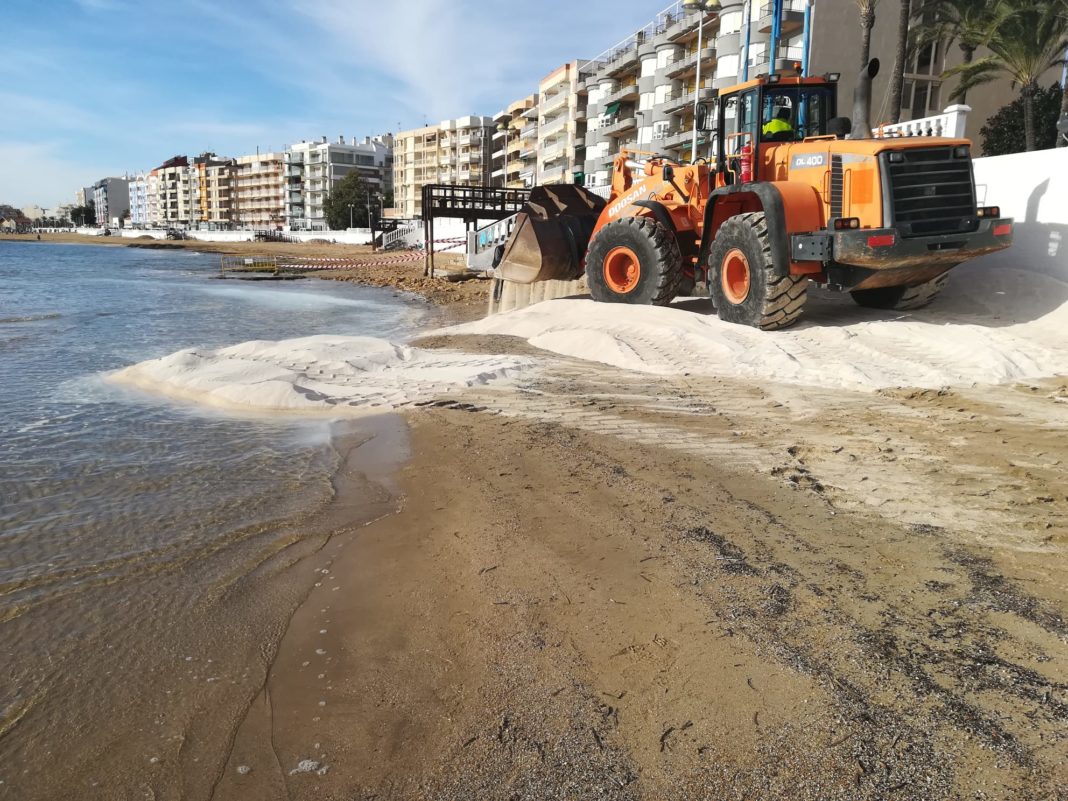As climate change and a lack of urban control combine to undermine the beaches of Spain, millions of cubic meters of sand disappear every year, the replacement of which requires a great economic and technical effort, and also a major environmental impact.
One such mega-project, the extraction of sand in deep waters off the coast of Cullera, 30km south Valencia, is costing 1,147 million euros. It will enable the deposit of 12.4 million cubic meters of sand on 16 beaches in Valencia and Alicante, from Sagunto to Pilar de la Horadada, some of which are located 220 km from the extraction point.
Environmentalists consider this action an economic waste that will have severe and critical environmental impacts on the seagrass meadows of posidonia oceanica and the fishing resources off the Valencian coast.
Ecologistas en Acción say that this project will have very important impacts on the posidonia meadows (protected species) that exist around the Puerto and Mojón beaches in Pilar de la Horadada, San Juan beach in Alicante, Marineta Casiana beach in Dénia and in the stretch of coast between the port of Dénia and the Girona River.
They say that the species is key in the fight against climate change, due to its great ability to capture CO2 from the atmosphere.
The project will also impact the fishing resources around the area from which a total amount of 66.4 million cubic meters of sand will be extracted (the deposit has a surface area of 26 km²), clouding the water and causing schools of fish to leave that area.
“The extraction of sand could result in the destruction of the marine habitat and the disappearance of the entire benthic community of living beings (mainly polychaetes and molluscs) that are a source of food for fish. The project will impact seven natural protected marine areas of the Natura 2000 Network, including La Albufera, Cabo Roig, Montgó, Cap del Horta, L’Almadrava, Marina Alta and the submerged coastal strip of the Region of Murcia.





